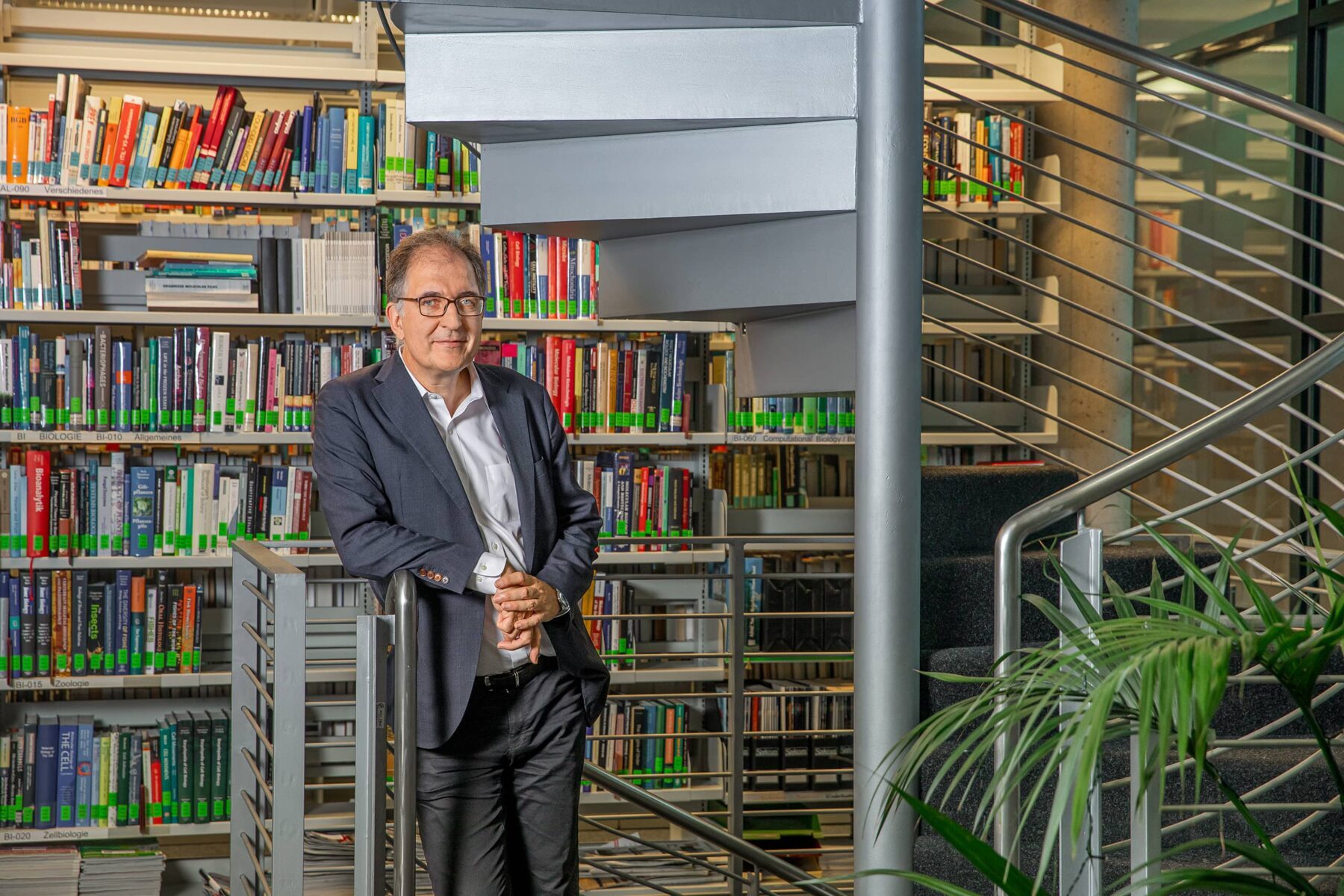
Science Park Ambassador Professor Peter H. Seeberger – »A Gravitational Field for Committed Researchers«
Professor Dr Peter H. Seeberger wants to solve medical problems with knowledge from basic chemical research. The Potsdam Science Park offers him the perfect environment to turn ideas into innovations.
The shimmering blue box is a true Potsdam native. The device, called Glyconeer, was developed at the Potsdam Science Park in Golm – where it is also manufactured and sold to laboratories all over the world. An automated chemical process takes place inside it: it produces artificial sugar chains. »They are the basis for a new generation of vaccines and diagnostic procedures,« says Peter H. Seeberger, Director at the Max Planck Institute of Colloids and Interfaces (MPICI) in the Potsdam Science Park and founder of the company GlycoUniverse, which produces the Glyconeer.
Sugar chains perform important tasks in the body. The so-called glycans, which are made up of simple sugar building blocks, ensure molecular communication with other cells on the outside of cells, for example. Pathogens such as bacteria, viruses or fungi can exploit this function: They dock onto body cells with the help of glycans – and thus cause diseases. With the help of the Glyconeer, the glycans from the surface of the pathogens can be artificially recreated to boost the immune system and develop new vaccines.
In the Potsdam Science Park, GlycoUniverse, a spin-off of the MPICI, has found the right environment to advance this ingenious idea from basic research to market maturity – and to continuously optimize it. »The Potsdam Science Park, with its close proximity between research institutes and research-related industry, offers an optimally dense package for innovations to emerge,« says Seeberger, who heads the Department of Biomolecular Systems at the MPICI. »You can get in touch with industry here quickly to explore opportunities and make good ideas fly commercially on the spot.« Especially in the field of health research and life sciences, the Potsdam Science Park is a first-class location for innovation in Berlin and Brandenburg.
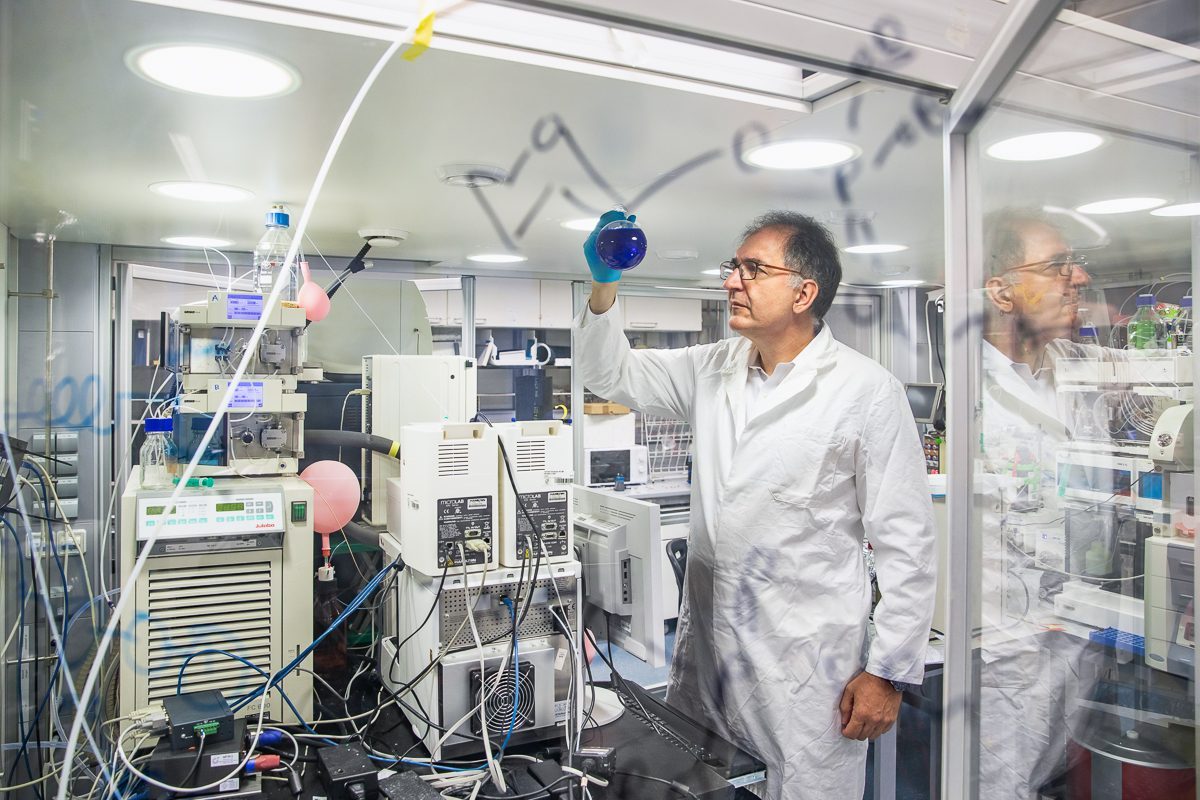
Seeberger is a basic researcher, but one who keeps going long after the theory has been put down on paper. »I refuse to stop because I am convinced that research and technology can make the world a better place,« he says. »Especially in the medical field, there are many problems that we can solve through dedicated research.« The Glyconeer, which is based on Seeberger’s many years of research into sugar molecules, is helping his team to develop novel vaccines themselves – for example against meningococci, which can cause fatal meningitis, or dangerous hospital germs. A vaccine candidate against the bacterium C. difficile is currently undergoing a clinical trial at Charité – Universitätsmedizin in Berlin. »We are in the process of preparing a joint spin-off for vaccine development against hospital germs,« says Seeberger.
Peter H. Seeberger, who has launched eleven companies in the course of his career, is already a shining example for spin-offs from science. The internationally renowned chemist sees start-ups as a way of giving something back to society. For example, he has succeeded in developing the idea of an efficient chemical method called automated flow chemistry into an innovation that enables the malaria drug artemisinin to be produced quickly and cost-effectively. The company ArtemiFlow, which he founded in the Potsdam Science Park as well, also produces anti-cancer drugs based on artemisinin, which are undergoing promising clinical trials in the USA.
»With the close proximity between research institutes and research-related industry, the Potsdam Science Park offers an optimally dense package for innovations to emerge.«
»Spin-offs from research work very well here in Potsdam-Golm and companies are also increasingly settling here because they want to access the skilled labour potential of the location and the entire capital region,« says Seeberger. The University of Potsdam alone, with its more than 10,000 students on the science-oriented Golm campus in the Potsdam Science Park, offers a constant source of well-qualified young talent. In addition, there are the major universities in Berlin, all of which are also within easy reach.
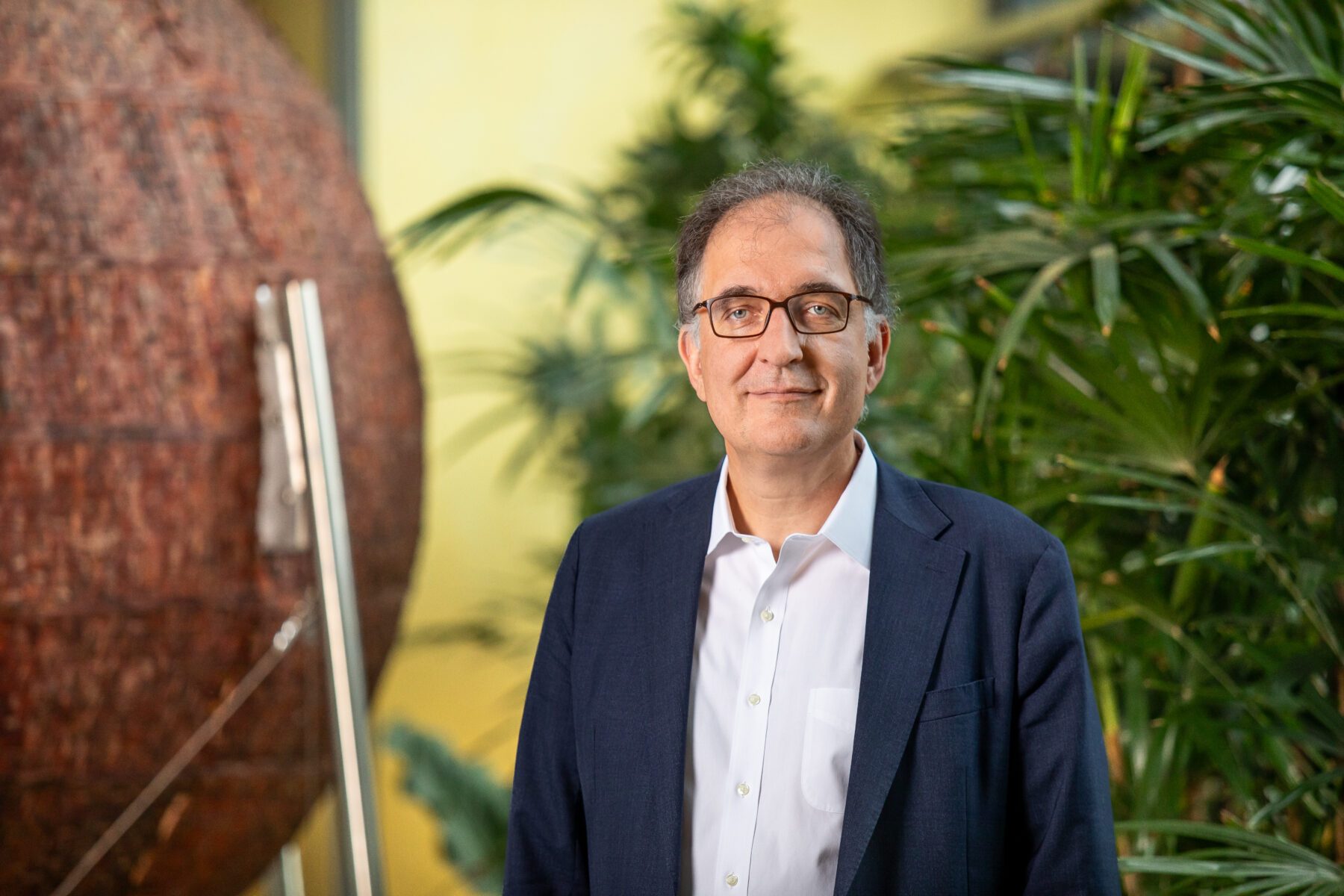
Vita Professor Dr Peter H. Seeberger
Ever since Peter H. Seeberger became Director at the MPICI in 2009, he has believed in the location and helped to raise its international profile through his contacts. »Back then, there wasn’t even a train station here, hardly any living space and no opportunities for spin-offs,« he recalls.
»Since then, things have gone steadily uphill and the Potsdam Science Park has developed into one of the leading campuses in the capital region. The site management is an important integrating player for the Potsdam Science Park, which has succeeded in building a good neighbourhood and establishing a brand, as well as bundling the interests of the users and letting them speak with one voice.«
The high concentration of cutting-edge scientific research – both non-university and university – acts as a gravitational field for committed researchers. Especially in chemistry, Golm is as attractive as Cambridge or Tokyo. But the location within the capital region is also an important argument for recruiting the best people from all over the world. Three out of four researchers from Seeberger’s own working group come from abroad; and GlycoUniverse also has an exceptional international presence with employees from India, Venezuela, Vietnam and Taiwan. »The site management is doing a really good job with the Welcome Service to welcome foreign specialists here, arrange accommodation and offer language courses.«
According to Seeberger, the Potsdam Science Park has also grown together more and more. »We have succeeded in building a good neighborhood and establishing a brand to the outside world,« he says. Now a place of work needs to become even more of a place to live and work. This requires additional living space, stores, restaurants – and a reliable connection to Berlin that makes it possible to stay longer in Golm in the evenings. »My dream is a kind of Las Vegas of the natural sciences, where you can work, live and start a business 24/7,« says Seeberger. »Only intelligence and willpower should be limiting factors, everything else has to be right.«
The projects carried out by Standortmanagement Golm GmbH at Potsdam Science Park are funded by the European Union and the Federal State of Brandenburg.
Text: Mirco Lomoth | Photography: sevens[+]maltry
Contact
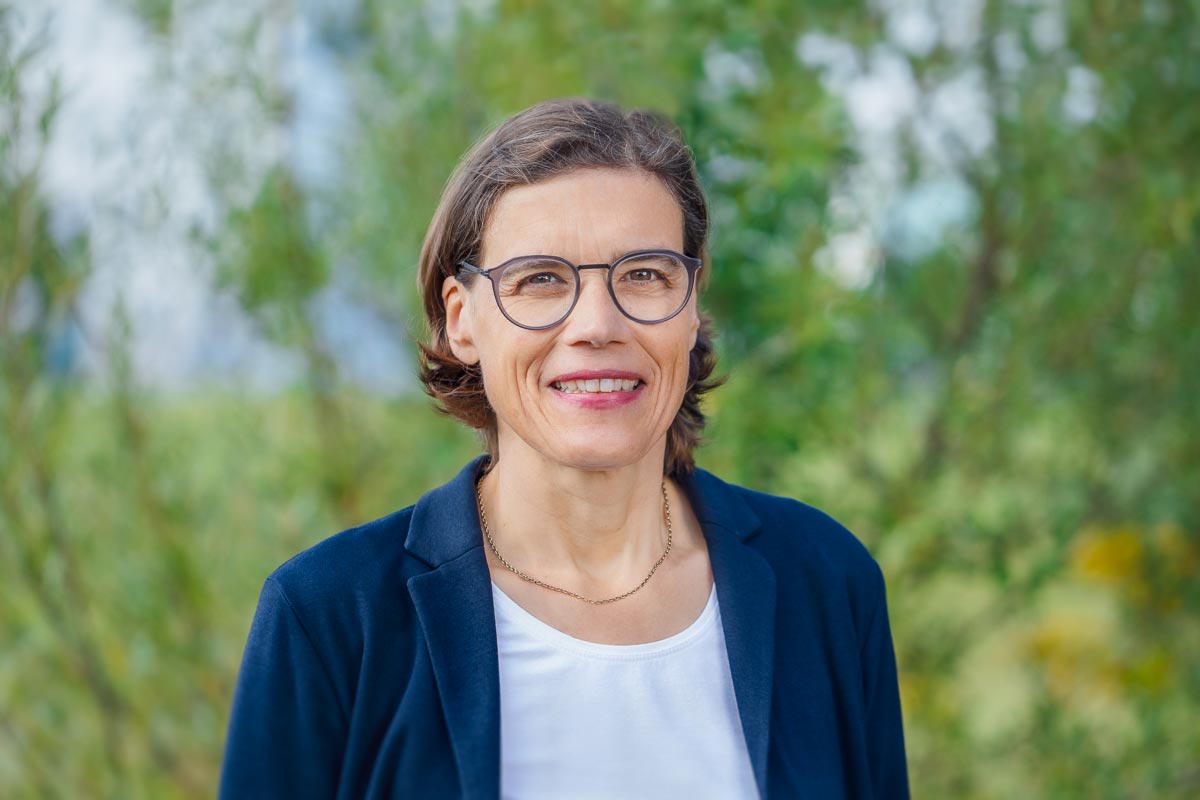
Agnes von Matuschka
Managing Director
agnes.matuschka@potsdam-sciencepark.de +49 331 237 351 135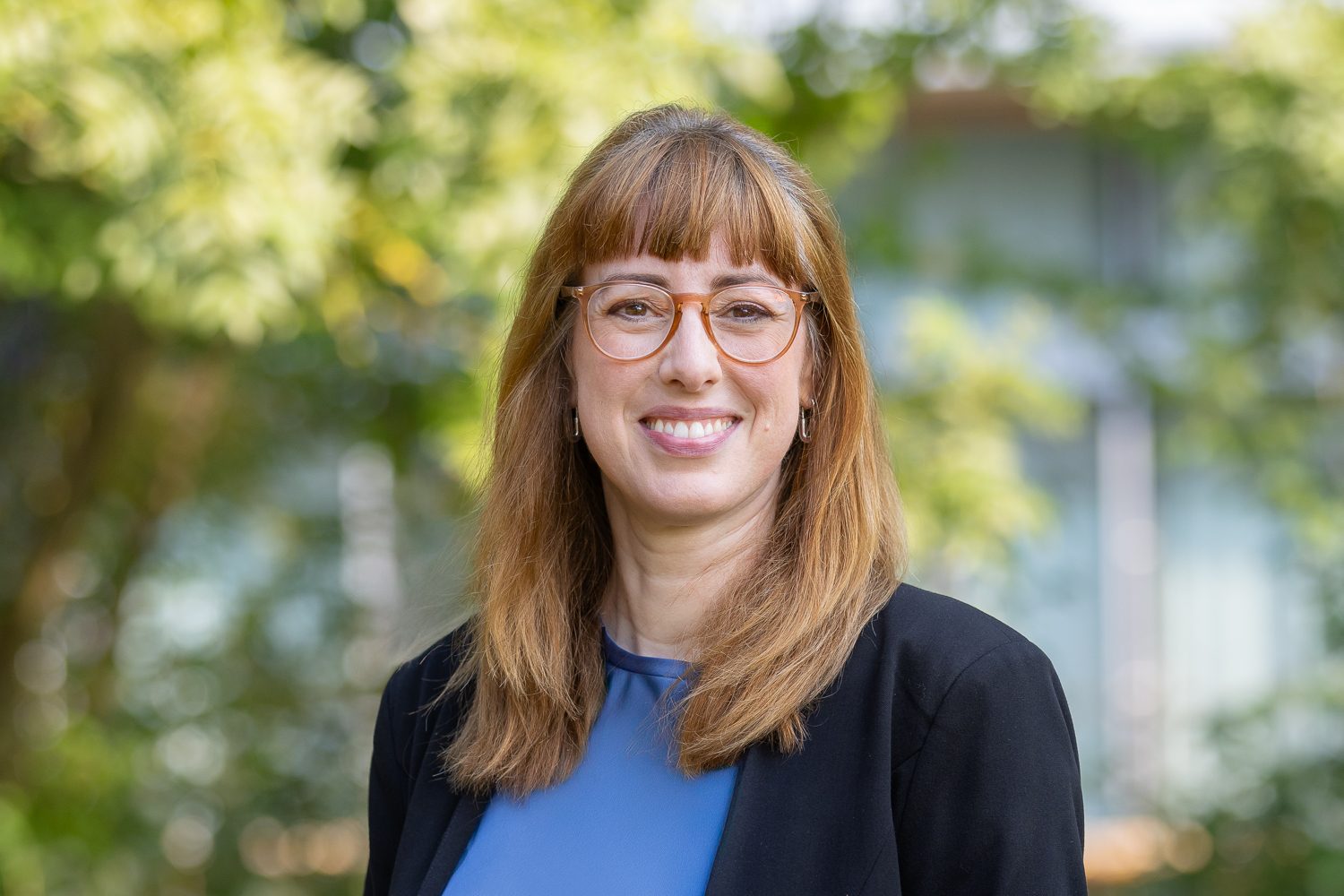
Karen Esser
PR & Communications
karen.esser@potsdam-sciencepark.de + 49 331 237 351 103